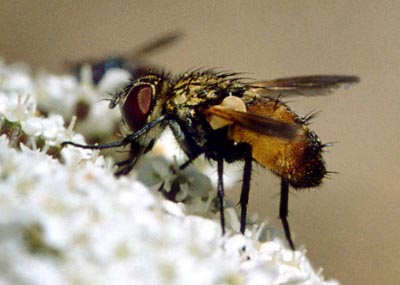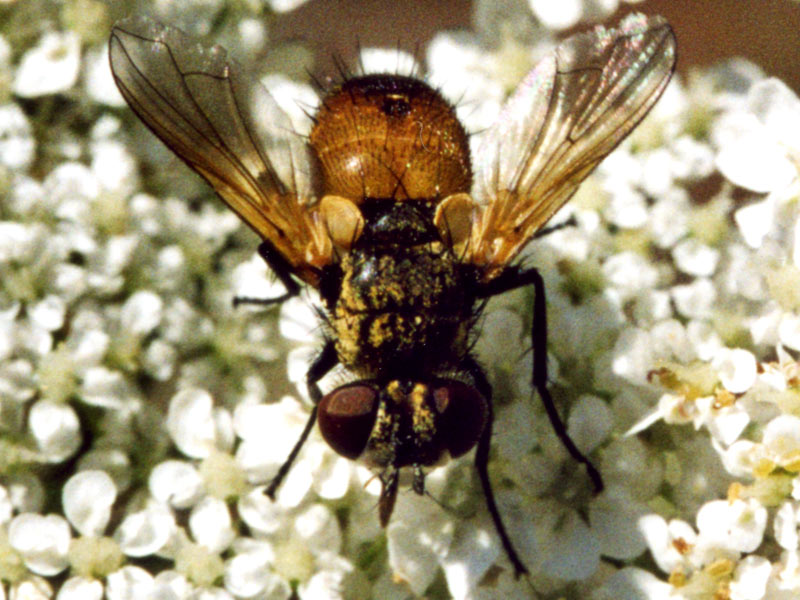Thread subject: Diptera.info :: Help with some Tachinidae
Posted by Arthropa on 11-09-2007 21:04
#1
Hello,
I'd like some help with this one, having lunch on some
Apiaceae :)


(Rimont, Burgundy, France - June 2003 - no precise dimension, sorry :|)
I first would have thought it is some kind of
Ectophasia, but I've been told it is much probably some
Eliozeta or some
Clytiomyia.
I'm sorry, these picts are pretty bad looking, and I have no bigger size : this was not a digital camera on that time ! :p I hope this will be enough for a genus.
Thanks for your help
Benoit
Posted by ChrisR on 11-09-2007 22:00
#2
Yes, definitely NOT
Ectophasia - more likely to be
Eliozeta (or as Theo calls it -
Heliozeta ;))
Posted by Zeegers on 12-09-2007 20:27
#3
I'm sorry to disturb the consensus, but I don't agree.
The wings are distinctly darkened, which is never the case in Heliozeta or Clytiomyia.
Moreover, it is darkened in a way that is characteristic for the female of Ectophasia.... leucoptera (there it is !).
So that's where my money is
(other features are difficult to see)
Theo
Posted by ChrisR on 12-09-2007 20:36
#4
Ahh, i never saw
E.leucoptera :( This just doesn't look like any of my
Ectophasia :(
Posted by Arthropa on 13-09-2007 12:11
#5
Thanks Theo and Chris ! :)
I spent some time searching, but there it is, I found my photos, and I re-scanned them : they're not better, but they're bigger ! :D
Here it is :



Does this help ? Confirmation of
E. leucoptera female ?
Posted by ChrisR on 13-09-2007 12:14
#6
I am wondering if the wing-shading is really an optical illusion caused by darkness/shadows in the background?
Also, I have examined my female
Ectophasia crassipennis here and they definitely don't have such stong bristles on the abdomen, as seen on these photos. My money is still with Eliozeta/Clytiomyia :)
Edited by ChrisR on 13-09-2007 12:24
Posted by Zeegers on 13-09-2007 19:49
#7
Chris is completely right. I got fooled by the background, as already suggested.
It's a female, quite orange, with shorter third antennal segment, so (H)eliozeta helluo female is the first that comes in mind.
Theo




